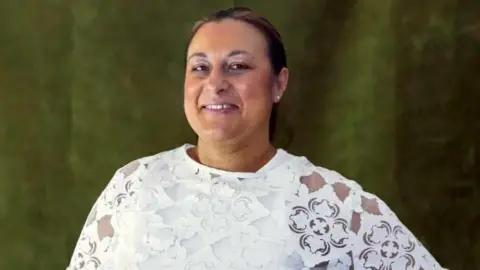The pressing issue of food insecurity among working individuals has been underscored by Leanne McDonald, the founder of a community support initiative called Simple Acts of Kindness, based in Wolverhampton. As the economic landscape continues to shift under the pressure of a cost of living crisis, McDonald has observed a troubling increase in the number of workers seeking assistance from food banks, highlighting the struggle many face despite being employed.
Launched during the COVID-19 pandemic, Simple Acts of Kindness aims to provide support to those encountering financial challenges. The organization operates primarily in Wolverhampton, Birmingham, and the Black Country, assisting approximately six to seven families weekly. McDonald’s efforts involve distributing donated household items, ranging from furniture to clothing, while also directing individuals in need to additional resources and services.
Recently, McDonald conveyed her concern about a noticeable rise in the number of working individuals, particularly full-time employees such as teachers and nursing staff, reaching out for help. “It’s shocking to realize that highly skilled professionals are struggling to provide basic necessities like food for their families,” she stated. The stark reality is that many in these professions are facing financial despair, with wages that do not align with the rising costs of living. McDonald emphasized that “we are in quite desperate times,” underpinning the urgency of the situation faced by these individuals.
In her role, McDonald not only manages the charity but also juggles a full-time job at a training academy. She finds it disheartening to see teachers, individuals responsible for shaping the future of children, unable to afford essential items. The crisis is compounded for McDonald, as the number of volunteers assisting Simple Acts of Kindness dwindled from about ten to just three. This reduction in support is attributed to volunteers seeking additional paid work to address their financial constraints.
Currently, Simple Acts of Kindness operates without a dedicated physical location, relying on McDonald’s home as the organizational base. Donations are stored in a rented space while she coordinates the logistics from her home, where her family frequently plays a crucial role in accommodating the initiative. Despite the mounting pressures from growing demands and the dwindling volunteer workforce, McDonald remains resolute in her commitment to continue providing aid. “I’ve had to strike a balance,” she reflects, noting her family’s understanding of the situation. “My children are accustomed to seeing individuals regularly drop off or pick up items.”
To alleviate some of the financial burden placed on her support group, McDonald plans to host a fundraising fun day at a local venue, the Golden Bar and Grill in Wolverhampton, on August 30. This initiative is aimed at generating the necessary funds to sustain the group’s operations amidst increasing demands and depleted resources.
McDonald’s insights resonate alongside recent findings from Citizens Advice, which reported that individuals on lower incomes are increasingly running out of financial options. A March report from the Institute for Public Policy Research revealed that the lowest-income households allocate nearly 41% of their earnings—after housing costs—towards essential services like water and energy, starkly contrasting with just 11% for the middle-income bracket and a mere 5% for the highest earners. The chief executive of Citizens Advice, Dame Clare Moriarty, emphasized the plight of low-income earners, stating that unavoidable costs are encroaching upon their finances at an alarming rate, pushing their budgets to the brink.
Indeed, McDonald’s observations and the statistics from various reports paint a concerning picture of socio-economic disparity that increasingly affects those who, on paper, should be adequately supported by their employment. As communities struggle with the volatility of living costs, grassroots organizations like Simple Acts of Kindness are stepping up, though often at personal costs to those leading the charge.












